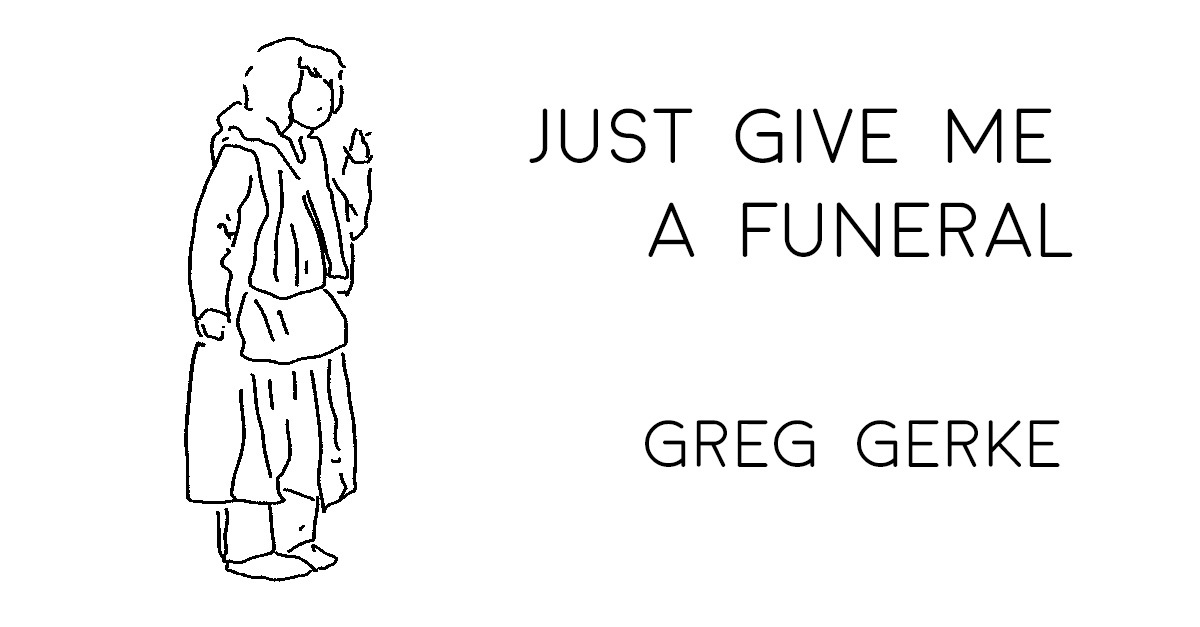
JUST GIVE ME A FUNERAL by Greg Gerke
On Thanksgiving, the southbound 1 train stopped at 96th Street and, to the surprise of the few people in the last car, an older woman with a sunbaked face in a big-brimmed gardening hat blocked the doors with a fold-up shopping cart and started to load four large bags of possessions into the space. She balanced the rectangular cart front wheels in and back out, over the gap between the car and platform, to jam the doors while hefting the bags around it and safely inside. Where did this rail-thin woman, probably 5’4”, get the strength? a young man on…
